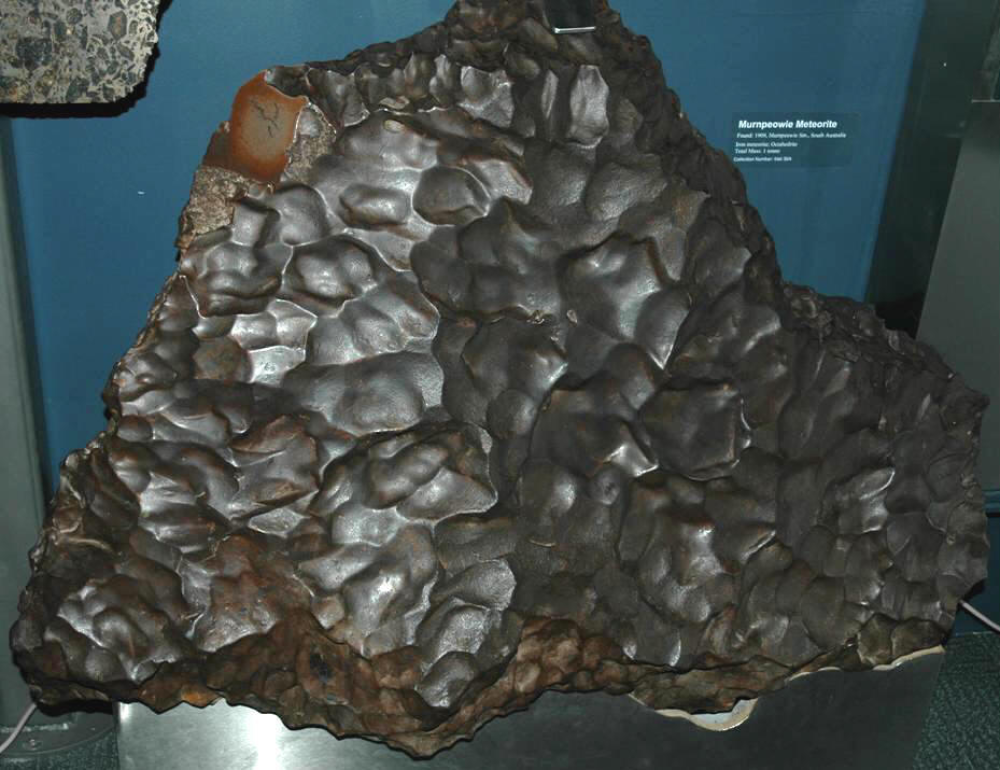Your chances of getting hit by a meteorite and incredibly slim, but never zero. Just ask Ann Hodges (figuratively speaking, she died in 1972) who became the first documented case of someone being hit by a meteorite in 1954 and survived.
A fresh meteorite strike story is currently doing the rounds about a woman in France who described hearing a “Poom” from a nearby roof before feeling a strange sensation. “In the second that followed, I felt a shock to the ribs. I thought it was an animal, a bat!” Newsweek quotes the Schirmeck resident as saying. She took the rock to a geologist who suggested it could be a meteorite, although he noted that would be extremely rare.
That extra-terrestrial “bat” probably had more Earthly origins, however, as according to the Mineralogy Museum of Strasbourg, the offending rock is more likely slag from the metallurgical industry. That’s according to a report from TV channel France3 who spoke with a museum worker with a lot of experience in the field of mystery falling objects.
“At least once a week, we have someone who comes to ask us to examine a stone, thinking they have discovered a meteorite,” explained Barbara Gollain. “And in 99 percent of cases, it is not one.”
Ah, nuts.

The Murnpeowie Meteorite was found in the South Australian Outback in 1909.
That the Schirmeck slag (and by that, we mean stony waste matter) wasn’t a meteorite doesn’t mean they never fall in human-occupied areas, but it is incredibly rare. A reassuring statistic from NASA states that no human in the past 1,000 years is known to have been killed by a meteorite or by the effects of one impacting, but there are a few ancient Chinese records of such deaths.
A person’s risk of death by meteorite strike increases with the size of the rare rock in question. As the dinosaurs found out, a chonky boy like Chicxulub could kill a lot of people both directly and indirectly. This sort of demonstrates why your chances of getting pinged by a mini meteorite like Ann Hodges are so slim, because the odds of that extra-terrestrial nugget flying down to Earth and landing on the insignificant speck that is your person are slim-to-none.
The meteoroid that exploded over Chelyabinsk, Russia, wasn’t reported to have directly hit anyone despite weighing around 12,000–13,000 metric tonnes and measuring 17 to 20 meters (56 to 66 feet) in diameter. In a 2014 paper on the subject, Tulane University earth sciences professor Stephen A Nelson estimated your likelihood of dying from a local meteorite was around one in 1,600,000, not as rare as finding Banana the lobster, but considerably less than your one-in-90 chance of dying in a car accident.
To further reduce the risk of getting squished by a nomadic space rock, the NASA Near-Earth Object experts like Dr Amy Mainzer keep one eye to the sky. A Professor of Planetary Science, and principal investigator of NASA’s Near-Earth Object Wide-field Infrared Survey Explorer (NEOWISE), Mainzer’s knowledge even landed her the unexpected role of being consulting scientist on Don’t Look Up, a movie that’s actually an allegory for climate change but with an ending to really light a fire under any lingering meteorite anxiety.
With record-breaking temperatures topping the news cycle seemingly daily in recent weeks, it seems as Doomsday scenarios go, meteorite strikes are pretty far down the list. You’ve a higher chance of being hit by, say, a bat.
Source Link: Meteorite Strike Story Has Us Wondering, What Are Your Chances Of Getting Hit By One?